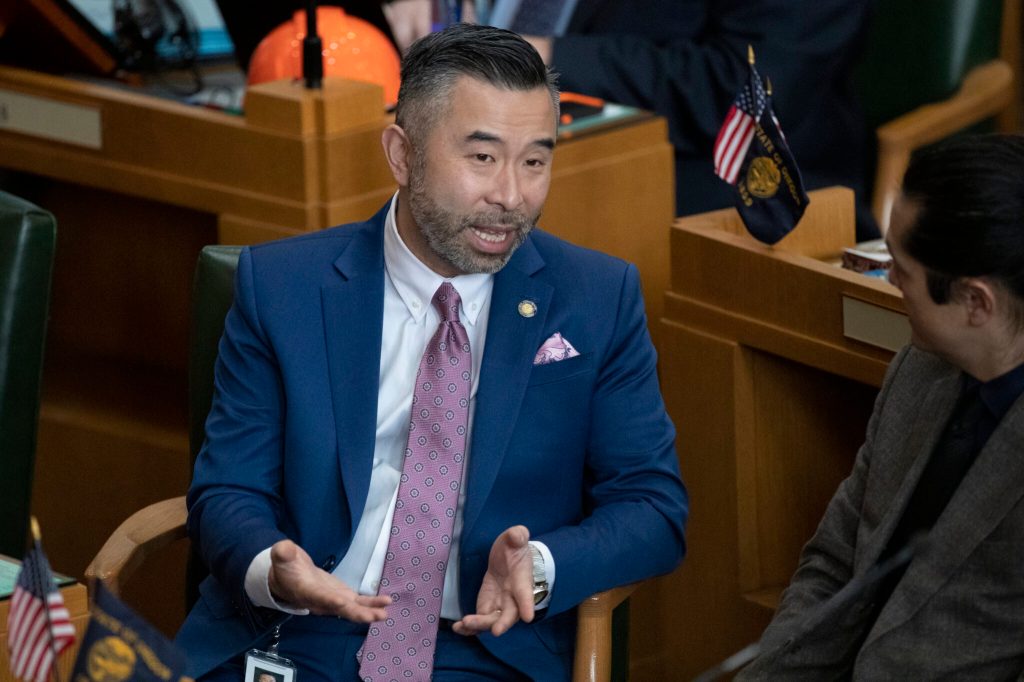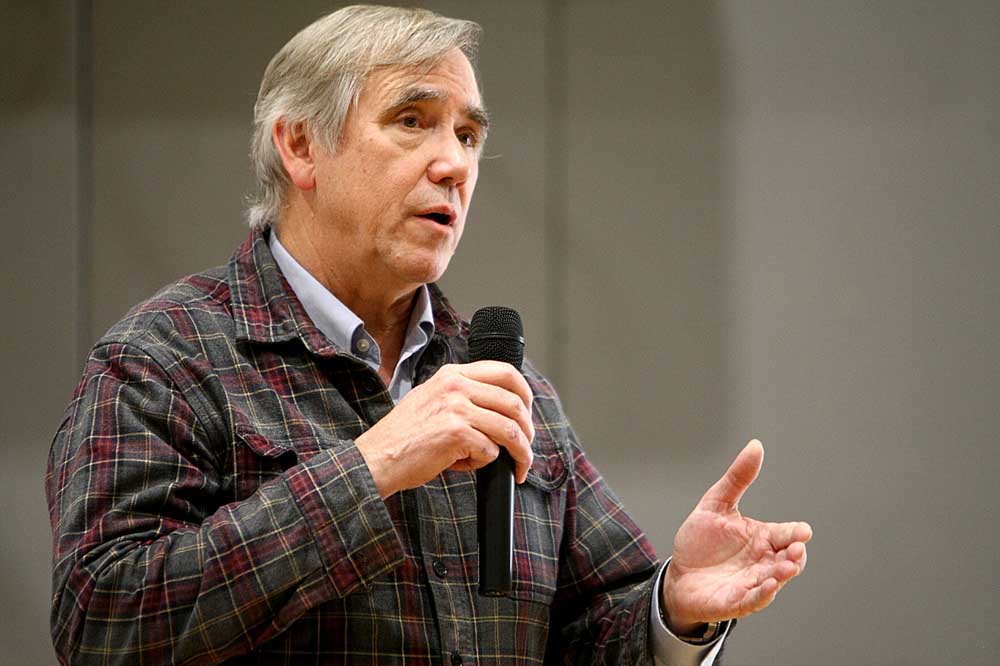New legislative caucus hopes to tap into Oregon’s trade potential
Published 6:58 am Friday, July 11, 2025

- Rep. Daniel Nguyen, D-Lake Oswego, left, speaks with Rep. Hai Pham, D-Beaverton, on the House floor at the Oregon State Capitol in Salem on Tuesday, Feb. 28, 2023. (Amanda Loman/Oregon Capital Chronicle)
Bipartisan group responds to tariffs, port issues, competitiveness
Two Oregon lawmakers have launched a bipartisan caucus to promote trade, business development and international economic policy.
Reps. Daniel Nguyễn, D-Lake Oswego, and Shelly Boshart Davis, R-Albany, announced the creation of the new Trade Caucus on Monday, with Nguyễn calling it “long overdue.”
“We have what the world wants to buy,” he told the Oregon Capital Chronicle in an email, emphasizing Oregon’s unique location between major ports in Seattle and Los Angeles. “It’s only natural that we use all of our voices to elevate the importance of strong trade relationships in a formal way.”
Trending
Legislative caucuses are groups of lawmakers who share similar policy interests. In Oregon, examples include the Coastal Caucus, Eastern Oregon Caucus or the Arts and Culture Caucus. The Trade Caucus, Nguyễn said, is meant to unify Oregon’s approach to domestic and international trade.
Unlike the U.S. as a whole, Oregon has a trade surplus, meaning it sends more goods abroad than it receives. It has the sixth highest rate of exports per capita — largely because of its location along the Pacific Ocean. In 2024, it exported $34 billion worth of products, mostly computers and electronics, transportation equipment, machinery, chemicals and agricultural products.
Oregon imported $28.2 billion in goods from other countries in 2024, with most goods coming from Japan, Taiwan, Canada, China and South Korea.
The caucus is also a response to the uncertain impact of President Donald Trump’s fluctuating tariffs and trade policies, as well as federal funding losses and their potential effects on the economy and Oregon businesses, Nguyễn said. In June, an informal survey from Business Oregon, the state’s business development agency, showed that most of the 290 businesses that responded anticipate negative impacts from tariffs under the Trump administration. Most of them raised concerns about supply chain disruptions, the increased cost of goods and increased prices for customers.
A new venue for businesses, lawmakers to share trade concerns
The lawmakers began discussing the idea of a trade caucus after Nguyễn introduced a bill during the most recent legislative session to direct some lottery funds to Business Oregon to promote trade. It would have included hiring consultants to represent Oregon abroad, funding trade missions and helping businesses navigate tariffs.
While the bill died upon adjournment, Nguyễn said the caucus will serve as a new venue for lawmakers to discuss how business owners are impacted by trade policies.
Trending
He called the caucus a “full circle moment,” as he and Boshart Davis first met during a trade mission in Tokyo in 2017 before they became legislators.
For Boshart Davis, the lack of legislation related to trade inspired her to create the caucus.
Since the early 2000s, her company Bossco Trading LLC has exported agricultural products through Terminal 6, the state’s only international shipping container terminal based in Portland. She said the terminal’s recent operations were “tumultuous” after container service was nearly discontinued in 2024.
“It took a massive amount of coordination and outreach to the governor’s office and legislators for them to understand the grave consequences of doing so,” Boshart Davis said in an email. “Fast forward, we were successful and looking forward to a private business taking over operations of the port.”
She said she understands that supply chain struggles and regulatory burdens hamper trade opportunities for Oregon businesses, making them less competitive than businesses in other states and countries. But she sees tremendous opportunity for growth at Terminal 6, and hopes to better engage lawmakers about the impact their decisions have on trade.
“We know that Oregon is in a ‘manufacturing recession,’ and our agricultural sector is struggling,” she said. “Any platform to show that is harmful to Oregon at large is something I want to be involved in. Oregon’s geographical position in this world puts us in a prime position for trade, and we don’t believe we are even close to tapping her potential.”
So far, the lawmakers are the first two official members of the caucus. The legislators said they are hoping to grow the caucus with lawmakers also hoping to strengthen Oregon’s position on trade.






